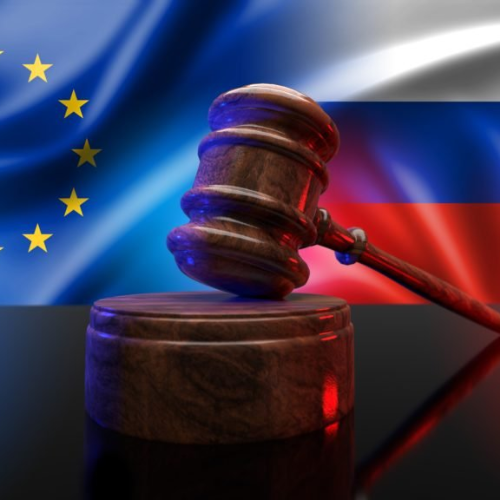European leaders are pushing for much tougher punishments against Russia because the war continues. The European Union (EU) has already put several rounds of sanctions—special rules meant to hurt Russia’s economy—in place to try to stop the war.
Now, many leaders want the 18th round of these sanctions to be much harsher. They say this is necessary because Russian President Vladimir Putin is refusing to agree to a 30-day ceasefire.
The Lithuanian Foreign Minister, Kestutis Budrys, said Russia is using tricks like delay and distraction to avoid facing tougher punishments. He mentioned that Putin recently spoke with U.S. President Donald Trump, but no agreement was made about stopping the fight. European countries want to break this cycle by making new rules that hit Russia harder so they have a strong reason to stop the war.
This call for harsher sanctions comes right after the EU adopted its 17th package of sanctions, which mainly targets Russia’s secret fleet of oil tankers. These tankers help Russia sell oil despite previous restrictions, so stopping them is very important.
Trump Rejects Harsh Russian Sanctions as Chance for Peace Emerges
What the New Sanctions Could Target
The leaders want the new sanctions to focus on key parts of Russia’s economy that help pay for the war. This includes energy exports like oil, liquid natural gas (LNG), and nuclear fuel. These resources bring in a lot of money for Russia, which is then used to fund the military conflict.
They also want to include Russia’s banks and financial institutions—these are the places that manage the money and make it possible for Russia to keep paying for weapons and supplies.
Another target is Russia’s military industry, which makes weapons and equipment used in the war. Sanctions on this industry would try to stop Russia from getting the tools it needs to continue fighting.
Frustration Over U.S. Inaction
While European countries are stepping up their sanctions, there is growing frustration about the United States not doing the same. President Donald Trump has said that adding more restrictions might make things worse. Because of this, no new U.S. sanctions have been announced, even though many European leaders hoped the U.S. would join them in increasing pressure on Russia.
Energy Pain or EU Unity? Slovak PM Fico Backs Referendum on Russia Sanctions Exit
Some European officials feel disappointed because President Trump doesn’t seem fully committed to adding more punishments on Russia. Reports suggest this might be because he wants to keep future business chances with Russia open, rather than making things tougher for them now.
Despite this, leaders from Ukraine and Europe stress that stronger sanctions are necessary. Ukrainian President Volodymyr Zelensky called for the EU to add new restrictions on Russian oil, their tanker fleet, energy infrastructure, banks, and military industry. He says Russia must feel the full price of its aggression.


